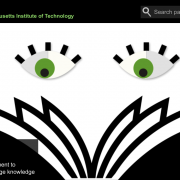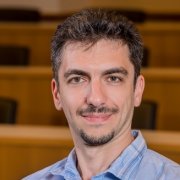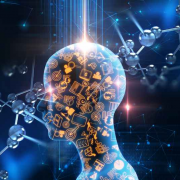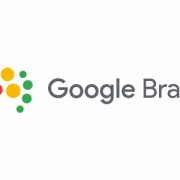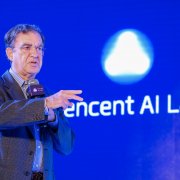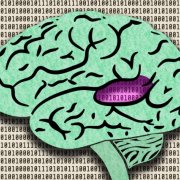May 28, 2018 - 9:00 am
CBMM will be hosting a week long AFNI Training Bootcamp, on the MIT campus, from May 28th through June 1st, 2018.
A team of NIH Trainers will be leading this Bootcamp.
Attendance is free of charge. Registration is required, see link to bootcamp website included below.
What AFNI Is:
AFNI is a set of...
A team of NIH Trainers will be leading this Bootcamp.
Attendance is free of charge. Registration is required, see link to bootcamp website included below.
What AFNI Is:
AFNI is a set of...
May 25, 2018 - 9:00 am
The Annual CBMM Retreat will be held on Friday, May 25th, 2018, at the McGovern Institute for Brain Research at MIT. This event is an important opportunity for the CBMM Community to come together, present current research and discuss ongoing and/or potential collaborations. The annual retreat is...
May 24, 2018 - 9:00 am
Wellesley College, Pendleton East, Room PNE-339
The study of intelligence draws upon background in a range of disciplines that include computer science, neuroscience, and cognitive science. This one-day workshop brings together educators from colleges and universities that are Broadening Participation Partners of the Center for Brains, Minds,...
May 23, 2018 - 9:30 am
Study tracks eye movement to determine how well people understand English as a foreign language.
Peter Dizikes | MIT News Office
May 22, 2018
Excerpt:
A study by MIT researchers has uncovered a new way of telling how well people are learning English: tracking their eyes.
That’s right. Using data generated by cameras trained on readers’ eyes, the research team has found that patterns of eye movement — particularly how long people’s eyes rest...
May 22, 2018 - 10:15 am
New evidence suggests a drop-off in results after the age of 17
The Economist
May 10, 2018
Excerpt: Those who want to learn a foreign language, or want their children to, often feel they are racing against the clock. People seem to get worse at languages as they age. Children often learn their first without any instruction, and can easily become multilingual with the right exposure. But the older people get, the harder it seems to be. Witness...
May 21, 2018 - 4:00 pm
Jonathan Miller, Associate Professor | Physics and Biology Unit, Okinawa Institute of Science and Technology...
Abstract: By a quirk of evolution, camouflaging octopus and cuttlefish report their visual perceptions by modulating their skin color and 3-d texture on time scales of seconds or minutes to match their surroundings (they are generative image modelers). Their survival demands that predators...
May 18, 2018 - 4:00 pm
Prof. Sasha Rakhlin
Please note change in date, talk was rescheduled from April 6th to May 18th.
May 11, 2018 - 4:00 pm
Prof. Nancy Lynch, MIT CSAIL
Title: An Algorithmic Theory of Brain Networks
This talk will describe my recent work with Cameron Musco and Merav Parter, on studying neural networks from the perspective of the field of Distributed Algorithms. In our project, we aim both to obtain interesting, elegant theoretical results, and...
This talk will describe my recent work with Cameron Musco and Merav Parter, on studying neural networks from the perspective of the field of Distributed Algorithms. In our project, we aim both to obtain interesting, elegant theoretical results, and...
May 4, 2018 - 2:00 pm
Jon Shlens, Google Brain
Abstract:
Recent advances in machine learning have profoundly influenced our study of computer vision. Successes in this field have demonstrated the expressive power of learning representations directly from visual imagery — both in terms of practical utility and unexpected expressive abilities. In...
Recent advances in machine learning have profoundly influenced our study of computer vision. Successes in this field have demonstrated the expressive power of learning representations directly from visual imagery — both in terms of practical utility and unexpected expressive abilities. In...
May 2, 2018 - 11:45 am
The Cognitive Neuroscience Society (CNS) awarded Prof. Elizabeth Spelke with the 2018 George A. Miller Award during teh CNS 2018 Annual Meeting, on March 25, 2018, in Boston, MA.
The George A. Miller Prize in Cognitive Neuroscience was established in 1995 by the Cognitive Neuroscience Society to honor the innovative scholarship of George A. Miller, whose many theoretical advances have greatly influenced the discipline of cognitive neuroscience....
May 2, 2018 - 10:15 am
Anne Trafton | MIT News Office
May 1, 2018
Excerpt: A great deal of evidence suggests that it is more difficult to learn a new language as an adult than as a child, which has led scientists to propose that there is a “critical period” for language learning. However, the length of this period and its underlying causes remain unknown.
A new study performed at MIT suggests that children remain very skilled at learning the grammar of a new...
April 25, 2018 - 5:00 pm
MIT cognitive scientist recognized for her work on the organization of the human brain.
Julie Pryor | McGovern Institute for Brain Research
April 24, 2018
Nancy Kanwisher, the Walter A. Rosenblith Professor of Cognitive Neuroscience at MIT, has been named a recipient of the 2018 Heineken Prize — the Netherlands' most prestigious scientific prize — for her work on the functional organization of the human brain.
Kanwisher, who is a professor...
April 20, 2018 - 4:30 pm
While Poggio the teacher has taught some extraordinary leaders in AI, Poggio the scientist is renowned for his theory of deep learning, presented in papers with self-explanatory names: Theory of Deep Learning I, II and III.
Those outside academia may know Tomaso Poggio through his students, DeepMind Founder Demis Hassabis and Mobileye Founder Amnon Shashua. The former built the celebrated AI Go champion AlphaGo, while the latter has installed...
April 20, 2018 - 4:00 pm
Phil Nelson, Google Research | Google Accelerated Science team
Abstract: Google Accelerated Sciences is a translational research team that brings Google's technological expertise to the scientific community. Recent advances in machine learning have delivered incredible results in consumer applications (e.g. photo recognition, language translation), and is now...
April 19, 2018 - 6:00 pm
Neuroscientists train a deep neural network to analyze speech and music.
Anne Trafton | MIT News Office
Using a machine-learning system known as a deep neural network, MIT researchers have created the first model that can replicate human performance on auditory tasks such as identifying a musical genre.
This model, which consists of many layers of information-processing units that can be trained on huge volumes of data to perform specific...




